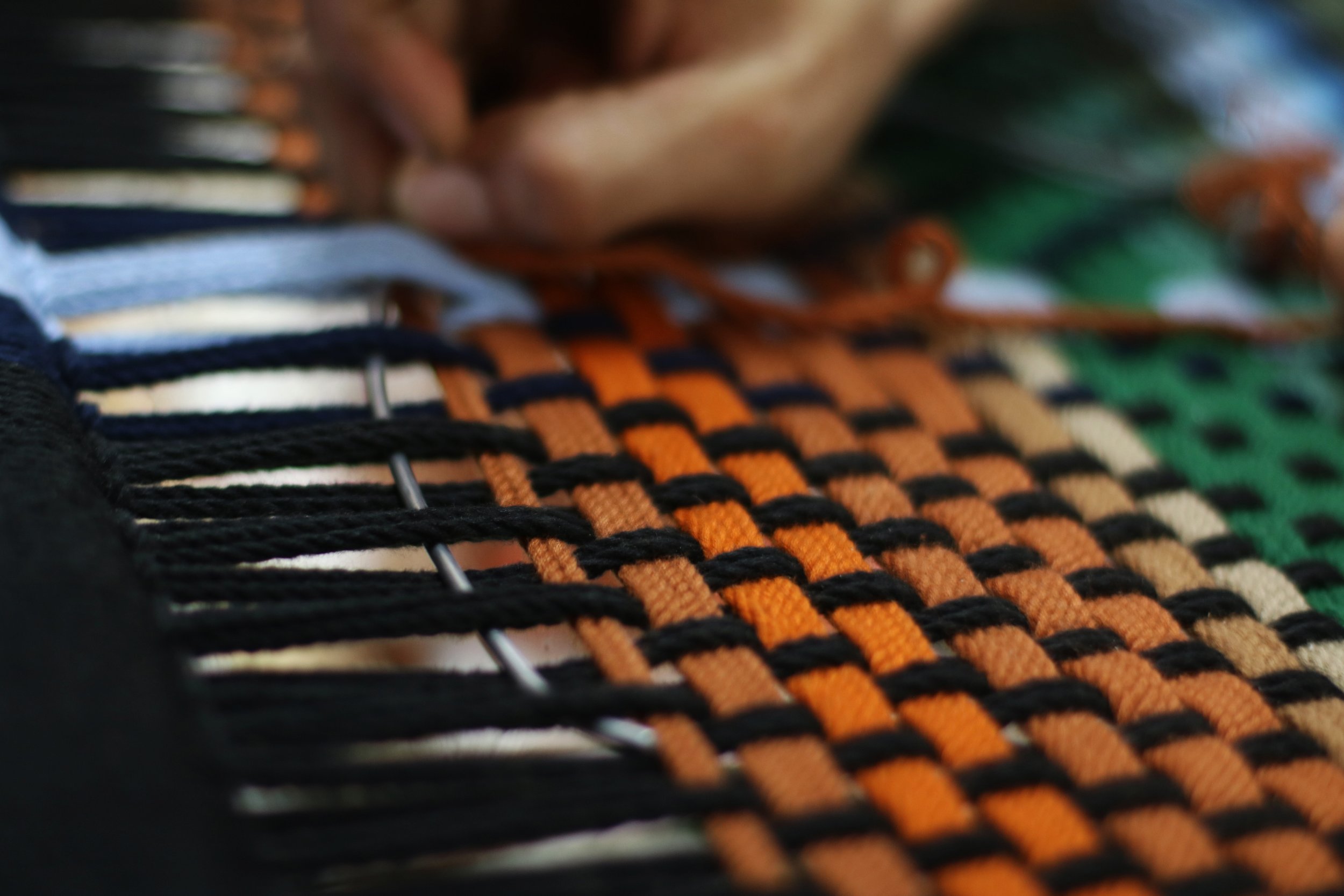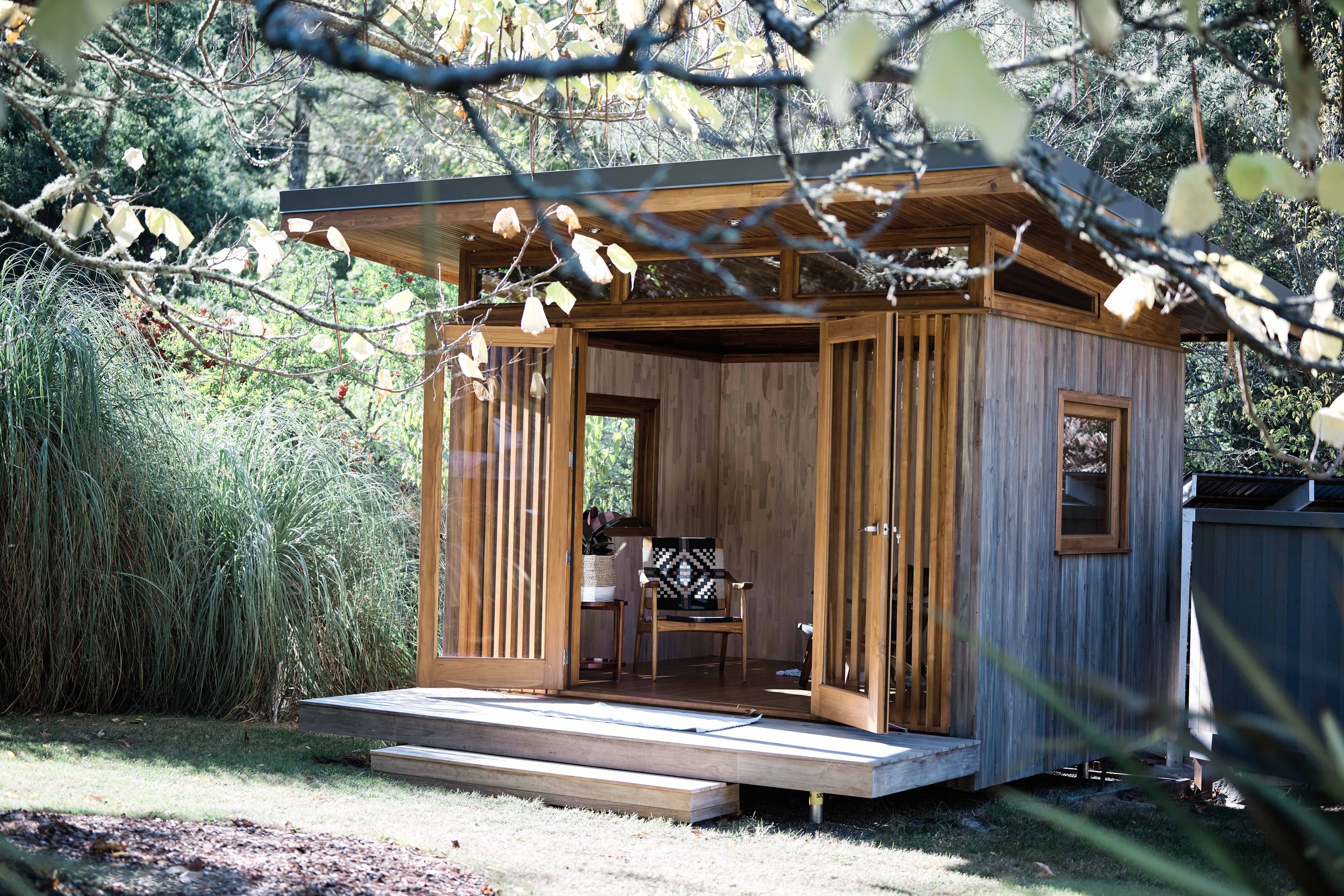ROOM + WILD NATURALS: Aram Terry
Unearthing the Legacy of MasayaCo: Sustainable Modern Wood Furniture, with Aram Terry, Co-Founder.
In R+W Naturals, we connect with like-minded visionaries who set the bar in sustainable initiatives, embodying the Room + Wild mantra of ‘landscape enhanced structures’ and ‘making a positive impact with the natural world.’ Ultimately, they achieve the successful architectural, ecological and cultural integration of their most wild surroundings.
The common thread among Room and Wild Naturals lies in the unwavering dedication, fervor, and self-discipline exhibited by diverse individuals in connection with landscape. These qualities consistently propel these pioneers to excel in their respective domains, each possessing a distinct narrative that mirrors the uniqueness of the people and locales they engage with.
As we spotlight the trailblazers championing eco-first and sustainable practices, their commitment resonates, kindling our own inspiration. These organizations collectively pave the way, leaving an indelible mark on the trajectory of our planet's future.
Amid our pursuit of a more environmentally conscious world, the significance of responsible land management and preservation practices cannot be emphasized enough. Notably, the furniture industry significantly molds our ecological footprint. Nevertheless, a beacon of hope emerges in the form of sustainable furniture enterprises like MasayaCo. Their embrace of tree farming redefines the industry, casting a positive influence on environmental conservation and our planet's well-being.
“The furniture industry significantly molds our ecological footprint with MasayaCo emerging as a beacon of hope. Their embrace of tree farming redefines the industry, casting a positive influence on environmental conservation and our planet’s well-being.”
One of the key pillars of sustainable furniture production lies in the adoption of a fully regenerative natural resource management operation, such as agroforestry. Unlike traditional logging practices that result in deforestation and habitat destruction, tree farming involves the cultivation and harvesting of trees in a carefully managed and renewable manner. By planting more trees than they cut down, companies like MasayaCo ensure the preservation of natural forests and tree populations. Along with the many enormous ecological benefits — carbon sequestration, regenerative resource management, reduced carbon from shipping, soil health and water conservation, and increased benefits to the local economy, habitat and environment —it also takes us all a step closer to understanding sustainable business models that work.
“By planting more trees than they cut down, companies like MasayaCo ensure the preservation of natural forests and tree populations. Along with the many enormous ecological benefits — carbon sequestration, regenerative resource management, reduced carbon from shipping, soil health and water conservation, and increased benefits to the local economy, habitat and environment —it also takes us all a step closer to understanding sustainable business models that work.”
As huge fans and supporters of MasayaCo, we were honoured to have the opportunity to talk with co-founder Aram Terry and learn more about the company and the major role it plays in setting the bar in sustainable practices in its industry.
R+W: Tell us a bit about yourself, the early years of MasayaCo and how it came to fruition. Can you give some insight into the current range of product offerings and what were the original pieces to hit the market when you began?
AT: After graduating from Boston University with a degree in finance, I wanted to do something different. I joined the Peace Corps and flew to Nicaragua, where I started noticing deforestation in a country usually known for its abundant nature. Because cattle farming is a big source of income, many farmers deforest areas for their cattle. Our goal is to make reforestation a sustainable business — environmentally, economically, and socially. I started exploring the idea behind tree farms, and how to make these into an economically viable business. We purchased deforested land, converted it into tree farms and began using the wood for our products. The first to launch were the handwoven lounge chairs. After a friend wanted some chairs for his home, Abril decided to test something new, and use the traditional weaving techniques from her town, Masaya, to make a chair.
R+W: What is the driving force behind MasayaCo and the overall mission of the team and organization?
AT: We have a team of over 350 people working behind the scenes to make this project happen. Our driving force is to plant more trees and make reforestation a sustainable business. We plant hundreds of thousands of trees each year. By annually planting more trees than we harvest, we establish a replenishing cycle, providing both environmental and economic benefits. Our mission is to design and craft pieces that are good to the planet and people, giving back with each of these through our reforestation efforts. So far, our designs have planted over 1.2 million trees.
“We plant hundreds of thousands of trees each year. By annually planting more trees than we harvest, we establish a replenishing cycle, providing both environmental and economic benefits. So far, our designs have planted over 1.2 million trees.”
R+W: As leaders in your industry, becoming one of the first truly sustainable furniture manufacturers, what are some roadblocks you had to overcome?
AT: One roadblock we faced was ensuring that each part of the process is sustainable. That can be very hard to measure, especially when some items are outsourced. We try to use as much of the wood as possible, so that we don’t waste any material. The cost of keeping the forest thriving is another challenge. We have to ensure that everything is accounted for, and make reforestation a sustainable business model that will not fail economically.
R+W: Any advice you would give to consumers looking to make environmentally-conscious buying decisions?
AT: When you’re deciding what to buy, research your options. Find companies that are true to their word, and don’t just use sustainability for greenwashing.
“Our creative director, Abril Zepeda is from Masaya, Nicaragua. It’s a town known for its artisanal nature, where hammocks and pottery are made using traditional methods dating back hundreds of years. She finds inspiration in the vibrant colours of our active volcanoes and in the tradition behind the tilework in colonial towns”
R+W: How does the local landscape and Nicaraguan culture inspire your design and craft? The signature MasayaCo design exudes heritage and functionality in its intricately woven colour-ways, patterns and minimalist structure in the woodwork.
AT: Nicaragua is known for its abundant nature and rich culture. Our creative director, Abril Zepeda is from Masaya, Nicaragua. It’s a town known for its artisanal nature, where hammocks and pottery are made using traditional methods dating back hundreds of years. Since she was young, Abril has been exposed to the traditional textiles and weaving in her town, as well as the nature all around her. Abril took these traditional weaving techniques and put her own twist on them, coming up with MasayaCo’s unique weaving patterns. She finds inspiration in the vibrant colours of our active volcanoes and in the tradition behind the tilework in colonial towns, and translates this into our unique patterns.
R+W: How has being located in Nicaragua played a role in shaping MasayaCo? Perhaps you can tell us more about the ecology of your local environment?
AT: Nicaragua is a big country in Central America, filled with lots of land. Its economy mainly depends on agriculture, especially the exportation of meat, coffee, and grains. While the majority of the land is natural forests, many areas are deforested to become suitable for agricultural production, including cattle farming. Our goal is to get some of this deforested land and bring it back to its natural use — being a forest.
R+W: How has the local community been involved? What practices are currently in place and proven to be effective? What challenges have the landscapes/wildlife of Nicaragua faced, and are there any steps being taken to improve the situation?
AT: The local community has been involved since day one — they are the farmers of our reforestation projects, the carpenters, engineers, designers, and artisans that make up our team. Our sustainably managed forests continue to provide jobs to the local communities in caring for the forests. MasayaCo always focuses on employing people from the surrounding communities of our tree farms and our factory, creating more jobs in our local communities. Our carpenters and weavers are provided with in-depth training in-house, giving them all the knowledge necessary for the job. We employ over 350 people in Nicaragua.
Nicaragua’s wildlife faces the challenge of people with lower resources taking advantage of the forest for its economic benefits without giving back to the environment. There’s little to no education on the importance of the forests, which results in lots of cutting down trees, burning trash, and littering.
“The big picture is making reforestation economically viable through great design. We grow trees, design, craft, and grow more trees in the process. It starts from each seed, and gives way to a final product that incorporates each little bit of its process. ”
R+W: Tell us more about the seed to seat initiative? How did tree farming become the backbone of your operation and what does it take to produce each unique piece?
AT: The big picture is making reforestation economically viable through great design. We grow trees, design, craft, and grow more trees in the process. It starts from each seed, and gives way to a final product that incorporates each little bit of its process.
Our Seed to Seat initiative represents our whole process, from start to finish. Our process starts with collecting certified seed stock and germinating seedlings on site. Each nursery produces between 50,000–200,000 seedlings. These are then cultivated over three months before being planted. We also donate trees to be planted in parks, riverbanks, public roads, and public areas.
The trees are planted on lands spent by cattle farming. By year two, some of the seedlings are six feet tall, which affects the soil and temperature. The first two to three years require intense maintenance as the seedlings establish as trees. Then, the wood we collect is graded, trimmed, and air-dried. Biomass, scrap, and other waste are sent to a biomass generator to be converted into sustainable energy. Our artisans handcraft the renewable wood into timeless designs that are made to last for generations. Everything is handmade — there’s no mass production here.
R+W: Here at Room + Wild HQ, we have seen first hand the craftsmanship/artistry of MasayaCo and can attest to the quality of your products. How does the product life cycle play a role in sustainability?
AT: A huge part of sustainability is creating products that can stand the test of time — making a product that is not single use, but instead has the quality to last for generations. Aside from being a renewable resource that captures carbon, we use wood to craft our products because of its durable qualities — specifically solid teak. Teak is considered to be one of the strongest hardwoods, making it perfect for indoor and outdoor furniture. Each piece is meticulously handcrafted by artisans using traditional methods, and passes thorough inspection to ensure quality.
R+W: What does the future hold for MasayaCo? Can you tell us more about your new project Masaya Homes and anything else you have in the pipeline?
AT: More trees. More designs. More conscious ways of living. We have new designs that are very exciting for us, set to be launching soon. Our sister company, Masaya Homes is rapidly growing in California (sharing our Berkeley showroom). Following our inspiration of growing as many trees as humanly possible, Masaya Homes is all about crafting ADU’s from “Seedling to dwelling.” Whether you’re looking for a backyard office, extra living space, or a ZenDen to relax, Masaya Homes offers seven different options, from a 120-square-foot studio to a 1,200-square-foot two bedroom and office ADU. Check them out at masayahomes.com. Also in development is our Masaya Teak line, where we will offer everything from doors and decking to cladding, pergolas, and more. It’s set to launch in early 2024
R+W: What are the other long term goals of the organization?
AT: Our goal is to continue to grow as a reforestation project and as a business. We want to set the example that sustainability can and should come first. While we just expanded our showrooms in Panama and Berkeley, California, we would love to continue expanding, and increase awareness about the company. It’s also important for us to grow more trees, and grow more awareness about shopping consciously and choosing smart, sustainable pieces for your home.
More on Masaya tree farms:
We have four tree farms across Nicaragua, where we have planted over 1.2 million trees in over 1,300 acres of land. While we take wood to craft our furniture pieces, around 40% of our reforestation projects are left untouched, letting nature do its job on its own. The forest continues to capture carbon, and lets flora and fauna thrive.
How to shop for MasayaCo
Shop for MasayaCo online through masayacompany.com, or visit our showroom locations:
Nashville, TN, U.S.
Berkeley, CA, U.S.
Panama City, Panama
San José, Costa Rica
Managua, Nicaragua
About MasayaCo.Lab
Our trade program is where our in-house designers work with interior design firms and individuals wanting to make their dream project a reality. We work on residential, commercial, and hospitality projects around the world, with big and small firms alike. Our designers have worked with Meyer Davis, Forrest Perkins, Marriott, Auberge Resorts, and other firms to bring their projects to life. The MasayaCo.Lab is all about crafting bespoke furniture pieces, working hand-in-hand with the designers to match their vision to the project.
MasayaCo exemplifies a promising step towards a greener and more sustainable future. By prioritizing responsible land use and community engagement, these companies demonstrate that sustainable practices can be economically viable and have a profoundly positive impact on our planet's conservation. As consumers and advocates, supporting such initiatives can encourage more businesses to follow suit, ultimately leading to a collective effort in safeguarding the health and balance of our precious environment.
Click below to learn more about MasayaCo and make an eco-conscious shopping decision from their outstanding handcrafted collections.

















